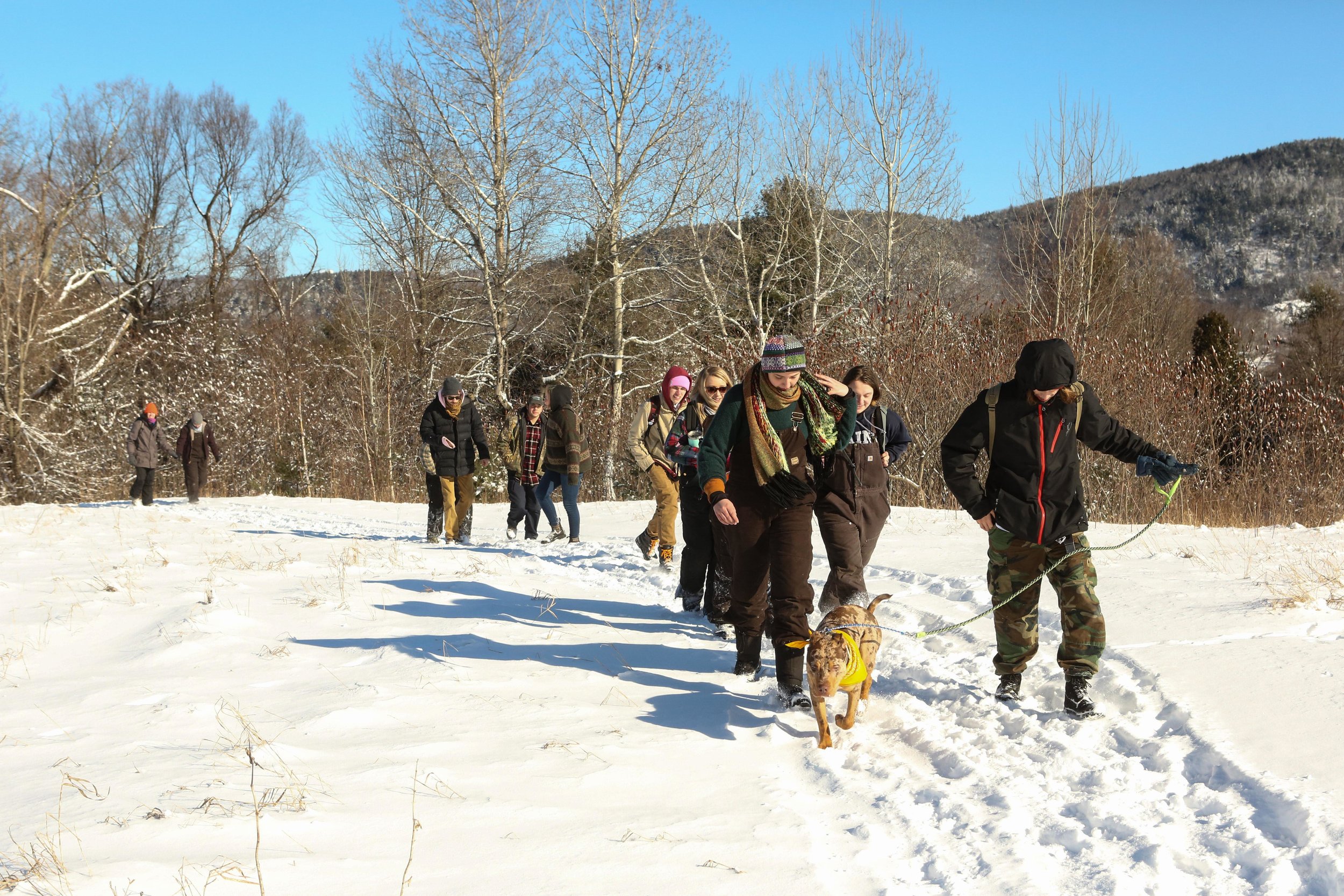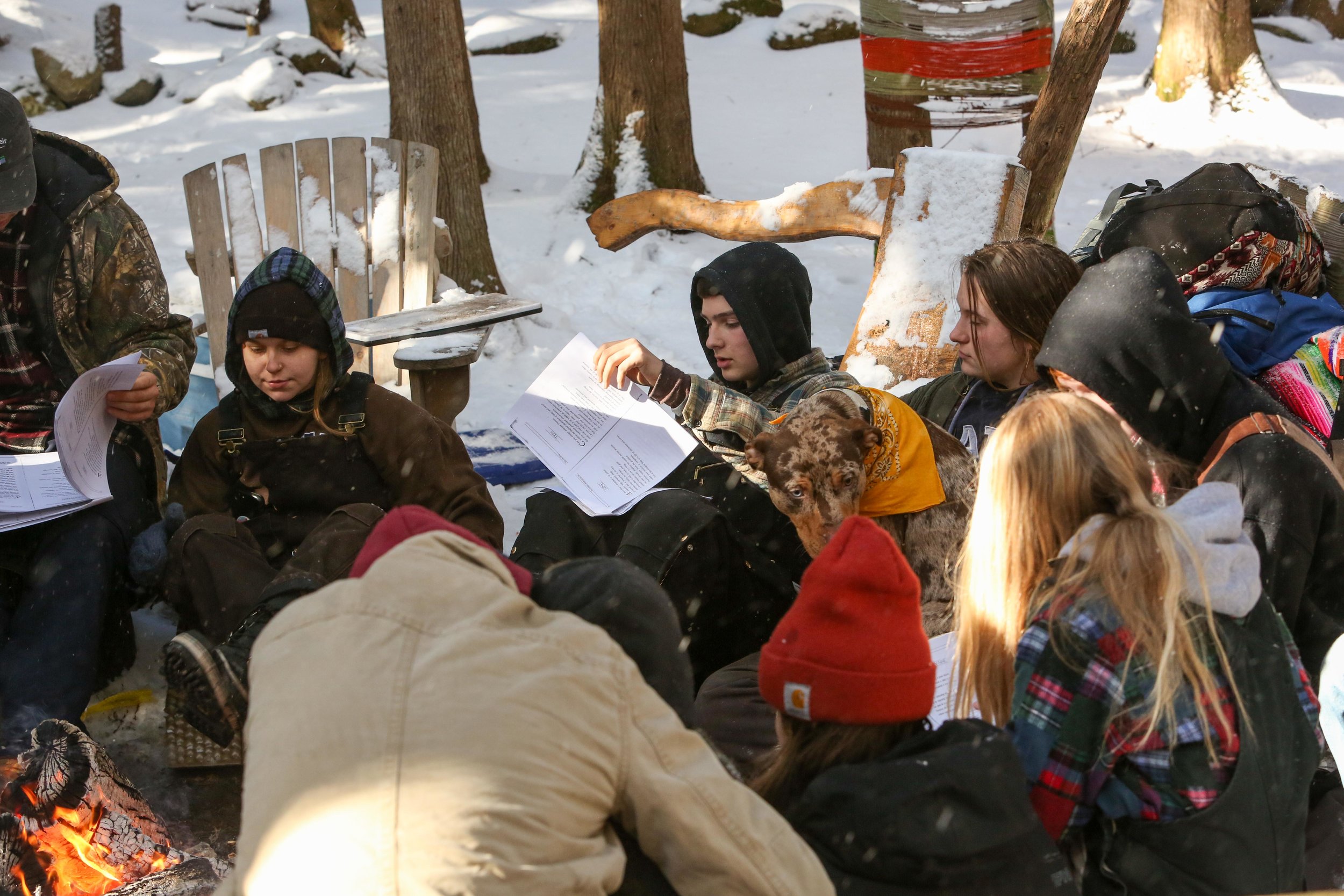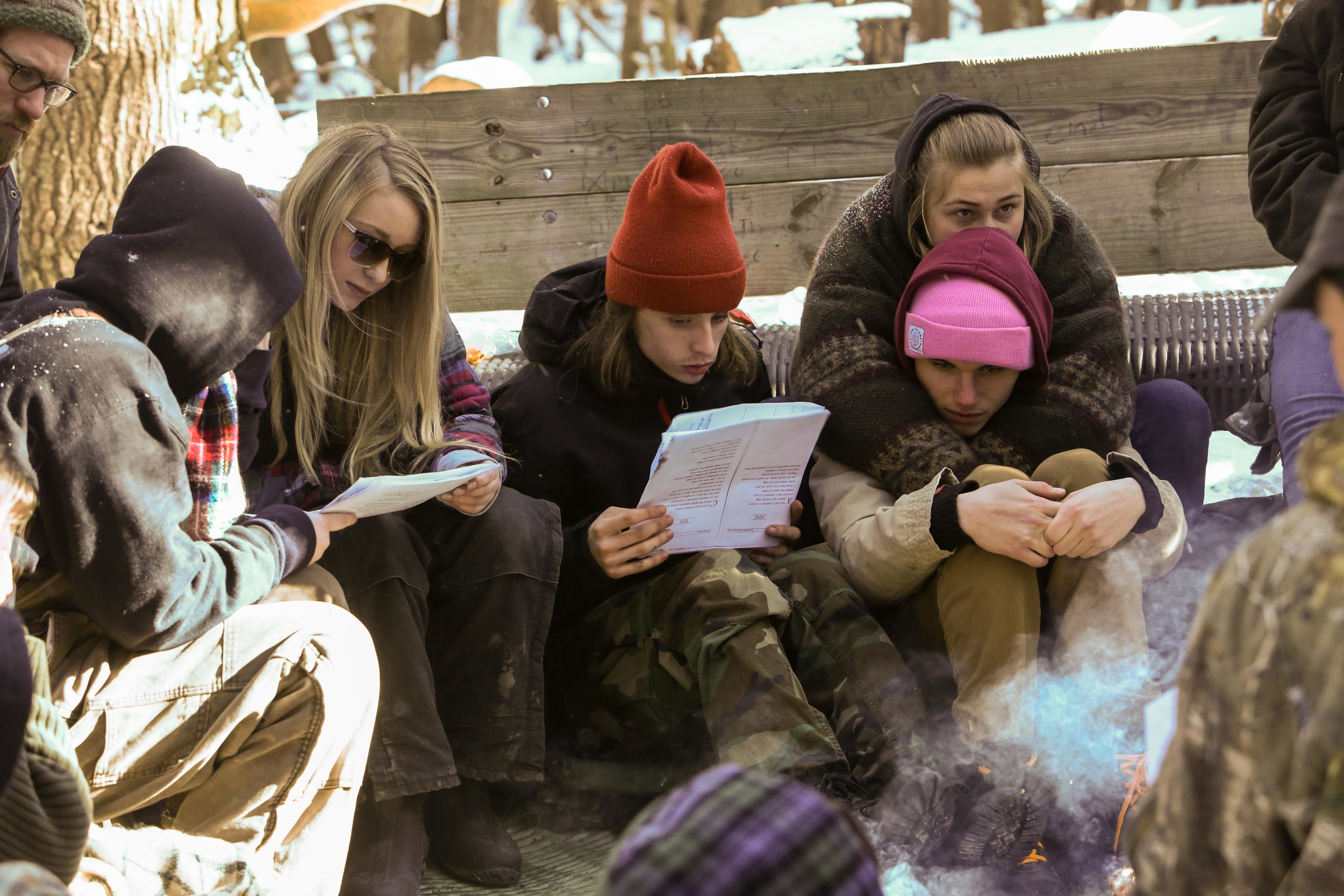
The Walden Project
OVERVIEW
The Walden Project is an outdoor, public education program serving public school students in grades 10-12 through Addison Northwest Supervisory Union in partnership with The Willowell Foundation, since 2000. This program provides an interdisciplinary, holistic, and immersive curriculum emphasizing writing, philosophy, and environmental studies.
The program is modeled on Henry David Thoreau’s sojourn to Walden Pond where he immersed himself in ecology to deepen his sense of self, and explore his relationship with self, society, and the natural world. To that end, we support student centered-inquiry and encourage youth to follow and pursue their own areas of interest with support and guidance from the staff. The Walden Project is proud of its association with Addison Northwest Supervisory Union and public education. The success of the program has been widely documented in a variety of media and has served several hundred students since its inception.
INTRODUCTION
A Few Words from Matt Schlein, Walden Project Director
There is an old Indian story of seven blind men who are asked to describe an elephant. Their responses all vary according to their experiences. The first blind man, who touched the elephant’s trunk, describes the elephant, “like a snake.” The second blind man, who touched the elephant’s leg describes the elephant, “like a tree trunk.” And so on. Each is convinced that they are right, based upon the part of the elephant’s anatomy that they have touched. They remain angry and isolated in their self-righteous indignation until a passerby tells them that they are all right and manages to integrate the pieces of their individual experiences.
This story has struck us as being directly applicable to the world of high school students. Like the blind men in the story, many teachers offer their view of the world through the lens of their academic discipline. The student, like the passerby, is asked to distill this information and create a cohesive picture of the world. While it is undoubtedly true that many students have achieved success with this model, it is also clear that this model does not work for everyone. Creating a sense of one’s place in the world, through education, is a highly individualized affair. To that end, it is important that we offer students a variety of ways to wrestle with the important questions of learning, where there is a natural thematic connection linking the fields of study. There is a historical precedence for this type of interdisciplinary education and it is alive throughout the world in various models of place based education.
The program is inspired by the writings of the great American philosopher Henry David Thoreau. Thoreau went into the woods to “live deliberately.” During his sojourn there, he meditated upon his life and the relationship between himself and his society. While he did not spend his entire life in the woods, this period was important for him in articulating his own writing and philosophy, which has inspired millions of others, including Mahatma Gandhi, Leo Tolstoy, and Martin Luther King Jr. It also furthered his own attempts to reconcile the notions of self-sufficiency and social responsibility.
The Walden Project asks students to look closely at the present day world and to discover how they can be contributors from a developed sense of social, environmental, and personal awareness. To help the students understand a community perspective, a broad cross-section of scientists, writers, artists, business people, trades people, and other community members will supplement their personal course of study.



